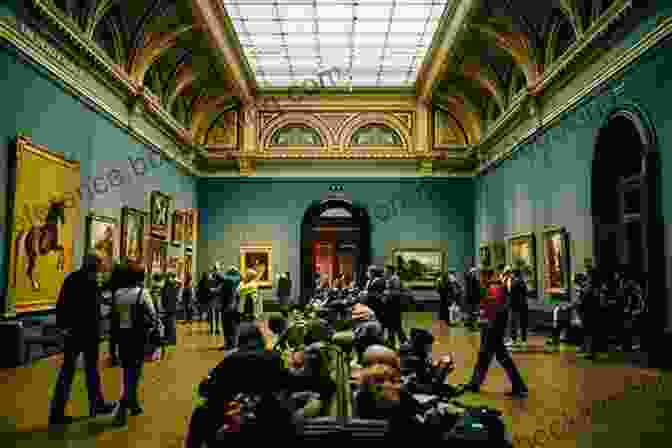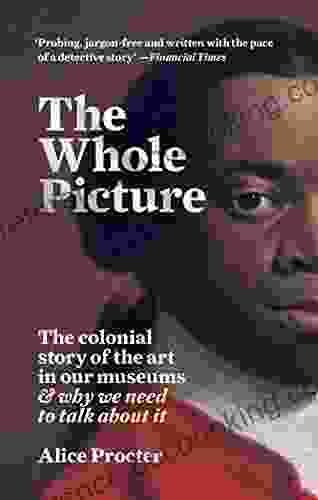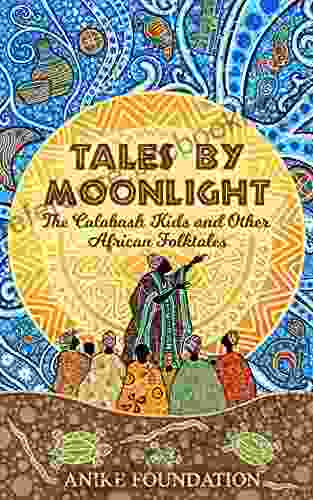The Colonial Story of the Art in Our Museums: Why We Need to Talk About It

Museums are often seen as bastions of culture and history, places where we can go to learn about the past and appreciate the beauty of human creativity. However, the reality is that many museums are also repositories of colonial loot, objects that were taken from their rightful owners during the era of European colonialism.
4.4 out of 5
| Language | : | English |
| File size | : | 8601 KB |
| Text-to-Speech | : | Enabled |
| Screen Reader | : | Supported |
| Enhanced typesetting | : | Enabled |
| Word Wise | : | Enabled |
| Print length | : | 246 pages |
The colonial history of the art in our museums is a complex and controversial topic. Some argue that these objects are valuable historical artifacts that should be preserved in museums, while others believe that they should be returned to their countries of origin. Regardless of one's stance on this issue, it is important to be aware of the colonial context in which these objects were acquired and to understand the power dynamics that have shaped their display and interpretation.
In this article, we will explore the colonial story of the art in our museums. We will discuss the ways in which colonialism has impacted the acquisition, display, and interpretation of art, and we will consider the ethical implications of displaying looted art.
The Acquisition of Colonial Art
The vast majority of the art in our museums was acquired during the era of European colonialism. This was a time when European powers were actively engaged in the conquest and exploitation of territories in Africa, Asia, and the Americas. As part of this process, they looted vast quantities of art and artifacts from these regions.
The acquisition of colonial art was often justified on the grounds that it was necessary to preserve these objects for posterity. European collectors and museums argued that they were saving these objects from being destroyed or lost, and that they were making them available to a wider audience. However, this argument ignores the fact that these objects were often taken without the consent of their rightful owners, and that their removal from their original contexts has had a profound impact on their meaning and significance.
The Display of Colonial Art
The way in which colonial art is displayed in museums also reflects the power dynamics of the colonial era. These objects are often displayed in a way that emphasizes their exoticism and otherness, and they are often accompanied by labels that reinforce the idea that they are inferior to European art. This type of display reinforces the idea that European culture is superior to all others, and it perpetuates the myth that colonialism was a positive force in the world.
In recent years, there has been a growing movement to decolonize museums. This movement seeks to challenge the colonial narratives that have shaped the display and interpretation of art, and to give a voice to the perspectives of those who have been marginalized by colonialism. Decolonization can take many forms, such as repatriating looted art, relabeling objects to reflect their true histories, and creating new exhibitions that highlight the impact of colonialism on art and culture.
The Ethical Implications of Displaying Looted Art
The display of looted art in museums raises a number of ethical questions. First, it is important to consider the rights of the people who were dispossessed of these objects. Many of these objects have great cultural and religious significance, and their removal from their original contexts has had a profound impact on the communities that created them. Second, it is important to consider the message that is sent by displaying looted art. By displaying these objects, museums are implicitly condoning the theft and destruction that took place during the colonial era. This sends a dangerous message that it is acceptable to plunder the cultural heritage of other cultures.
Moving Forward
The colonial story of the art in our museums is a complex and challenging one. However, it is a story that we need to confront, if we want to create a more just and equitable world. By understanding the colonial context in which these objects were acquired and displayed, we can begin to challenge the power dynamics that have shaped our understanding of art and history.
We need to move beyond the colonial narratives that have dominated the display and interpretation of art for so long. We need to give a voice to the perspectives of those who have been marginalized by colonialism, and we need to create new exhibitions that highlight the impact of colonialism on art and culture. By ng so, we can begin to create a more inclusive and just museum experience, one that truly reflects the diversity of the world's cultures.
The colonial story of the art in our museums is a reminder of the dark side of our history. However, it is also a story of hope and resilience. The movement to decolonize museums is growing, and it is slowly but surely changing the way that we think about art and history. By working together, we can create a more just and equitable world, one where everyone's cultural heritage is respected and valued.

4.4 out of 5
| Language | : | English |
| File size | : | 8601 KB |
| Text-to-Speech | : | Enabled |
| Screen Reader | : | Supported |
| Enhanced typesetting | : | Enabled |
| Word Wise | : | Enabled |
| Print length | : | 246 pages |
Do you want to contribute by writing guest posts on this blog?
Please contact us and send us a resume of previous articles that you have written.
 Book
Book Novel
Novel Page
Page Chapter
Chapter Text
Text Story
Story Genre
Genre Reader
Reader Library
Library Paperback
Paperback E-book
E-book Magazine
Magazine Newspaper
Newspaper Paragraph
Paragraph Sentence
Sentence Bookmark
Bookmark Shelf
Shelf Glossary
Glossary Bibliography
Bibliography Foreword
Foreword Preface
Preface Synopsis
Synopsis Annotation
Annotation Footnote
Footnote Manuscript
Manuscript Scroll
Scroll Codex
Codex Tome
Tome Bestseller
Bestseller Classics
Classics Library card
Library card Narrative
Narrative Biography
Biography Autobiography
Autobiography Memoir
Memoir Reference
Reference Encyclopedia
Encyclopedia Alexandra Heminsley
Alexandra Heminsley Amanda Jordan
Amanda Jordan Amy Novesky
Amy Novesky Amy Mckinley
Amy Mckinley Alison Pearlman
Alison Pearlman Amali Lokugamage
Amali Lokugamage Andrew Goliszek
Andrew Goliszek Andy Rathbone
Andy Rathbone Alex Stone
Alex Stone Andy Husbands
Andy Husbands Alice Feeney
Alice Feeney Andrew Langley
Andrew Langley American Psychological Association
American Psychological Association Andrew Harvey
Andrew Harvey Allan W Eckert
Allan W Eckert Andy Andrews
Andy Andrews Angela Ray Rodgers
Angela Ray Rodgers Amy Butler
Amy Butler Angelico Chavez
Angelico Chavez Anatole Kaletsky
Anatole Kaletsky
Light bulbAdvertise smarter! Our strategic ad space ensures maximum exposure. Reserve your spot today!

 Arthur C. ClarkeUnveiling the Canine Connection: A Spine-Tingling Medical Thriller that...
Arthur C. ClarkeUnveiling the Canine Connection: A Spine-Tingling Medical Thriller that...
 Frank MitchellUsing an Equatorial Telescope Mount: Unveiling the Secrets of the Night Sky
Frank MitchellUsing an Equatorial Telescope Mount: Unveiling the Secrets of the Night Sky Jayson PowellFollow ·7.6k
Jayson PowellFollow ·7.6k Elliott CarterFollow ·15.7k
Elliott CarterFollow ·15.7k Jarrett BlairFollow ·7.1k
Jarrett BlairFollow ·7.1k Albert ReedFollow ·5.8k
Albert ReedFollow ·5.8k Donovan CarterFollow ·18.2k
Donovan CarterFollow ·18.2k Ernest ClineFollow ·14.3k
Ernest ClineFollow ·14.3k Jared PowellFollow ·7.7k
Jared PowellFollow ·7.7k Clinton ReedFollow ·7.6k
Clinton ReedFollow ·7.6k

 Julio Cortázar
Julio CortázarIf You Don't Do Politics, Politics Will Do You
Uncover the Hidden Power in Everyday Life In...

 Ivan Turner
Ivan TurnerThe Edge of Physics: Unraveling the Extraordinary...
What is the nature of...

 Diego Blair
Diego BlairAn Intuitive Guide For Using And Interpreting Linear...
Linear models...

 Oscar Wilde
Oscar WildeThrough Two Doors At Once: Unveiling the Enigmatic World...
Prepare to delve into the captivating realm of...

 Darrell Powell
Darrell PowellWomen Athletes in History: An Inspiring Gift for Teenage...
Unveiling the Extraordinary Stories of Female...
4.4 out of 5
| Language | : | English |
| File size | : | 8601 KB |
| Text-to-Speech | : | Enabled |
| Screen Reader | : | Supported |
| Enhanced typesetting | : | Enabled |
| Word Wise | : | Enabled |
| Print length | : | 246 pages |










